
For many years, Cao Bang has been at the bottom of the Provincial Competitiveness Index (PCI) rankings.
The unavoidable reality is that Cao Bang is in the lowest group nationwide in terms of Provincial Competitiveness Index (PCI). This is not an easy situation to hear, but it is even more impossible to ignore. This reflects a business environment with many barriers, lack of attractiveness to investors and, more importantly, is slowing down the province's socio -economic development.
In the overall picture of PCI, perhaps the province’s “Legal Institutions and Security and Order” index can still partly create trust with businesses. However, the rest is a whole system that requires synchronous reform - from administrative procedures, information transparency to the service capacity of the staff and civil servants.
The problem of our province does not lie in objective conditions such as fragmented terrain, lack of industrial zones, or geographical location far from the development center. The core problem lies in the internal strength of the management system - in the thinking, in the way of doing things, and in the people.
Concrete steps: From political will to practical action
Over the past time, the Provincial People's Committee has implemented many substantive efforts to improve PCI:
- Establish and effectively operate the Provincial PCI Steering Committee with the Provincial People's Committee leader as Chairman.
- Issue an action plan to improve PCI with specific targets for each component index.
- Periodically organize business dialogue conferences at provincial and district levels to listen to and promptly handle difficulties and problems.
- Apply the DDCI assessment toolkit (management capacity at department, district, and industry levels) and SIPAS ( measuring the satisfaction level of people and businesses).
- Organize training courses to raise awareness of PCI and the spirit of serving businesses for officials and civil servants from the province to the grassroots level.
- Coordinate with VCCI and professional organizations to consult on policies and learn from the experiences of leading localities.
Most recently, the Provincial People's Committee has completed the "Steering Committee for implementing the Project to improve the Provincial Competitiveness Index (PCI) for the period 2021". - 2025” and issued an action plan. These are positive signals demonstrating political determination. But political determination, if not transformed into concrete actions, implementation discipline and output results, remains just a slogan.
How PCI is measured - and why; rich provinces do not necessarily have high PCI
The Provincial Competitiveness Index (PCI) is not a measure of economic size or wealth. It is an index reflecting the quality of economic management by provincial governments, based on a survey of private enterprises actually operating in the locality.
Therefore, a province with a developed economy but with a cumbersome, cumbersome, and opaque administrative apparatus can be given a low score by businesses.
On the contrary, there are provinces that are not rich but have dynamic governments, strong reforms, and build trust - then PCI can be high. Typical examples such as Dong Thap, Lai Chau, and Phu Tho are clear evidence. From that, it can be seen that: what makes PCI ranking is not GRDP, but the spirit of service, transparency, and institutional reform.
It is also necessary to recognize the fact that, although the province has made many reform efforts, changing the awareness and feelings of the business community about the business environment in Cao Bang is still a long way off. Previous impressions of complicated administrative procedures, delays in handling work, or lack of support from some officials are still invisible barriers that make businesses hesitant.
Therefore, improving the PCI index is not only about improving internal processes or building institutions, but also about restoring trust and repositioning the local image - as a place where the government is truly open-minded, accompanies and serves. That requires perseverance, consistency in action and especially the exemplary role and leadership from leaders at all levels.
Key solution: Implement fundamental, breakthrough orientations to improve the business environment:
1. Transparency and digital transformation in serving businesses
The electronic information portal must be considered an “always open door” for businesses and people to access policies, planning, and procedures. There, all information must be complete, clear, regularly updated, and have real people in charge. Transparency is not a slogan, but must be a system operated by technology, monitored by data, and verified by feedback from people and businesses.
2. Restructuring local human resource development strategy
We are in a situation of “both weak and lacking” labor. Young people with capacity do not stay in the province to contribute, while young people with health go out to work as workers. Cao Bang is experiencing a brain drain and losing its workforce in its prime. There must be a specific mechanism to retain people - through scholarship policies, flexible recruitment, public housing, or support for local startups. If we do not do it promptly, we will lose our human advantage.
3. Innovating the approach to supporting businesses - considering micro-enterprises and business households as the foundation
Currently, the proportion of micro-enterprises accounts for 97% of the total number of operating enterprises in the area, of which about 80% have a revenue of less than 20 billion VND per year. This is an objective reality, reflecting the socio-economic characteristics of the province which are still small and spontaneous.
An alarming issue is that the locality’s credit absorption capacity is very limited. The total outstanding debt of the province at commercial banks currently reaches more than 10,000 billion VND, while the total mobilized capital reaches about 30,000 billion VND, meaning that only about 1/3 of the mobilized capital is used for lending locally, while the majority of the remaining cash flow is “flowing out of the province” to provide credit to other localities, while the local business sector does not have the capacity or conditions to access credit capital.
Border gate economy and logistics must also be restructured. Border gates are not only places for importing and exporting goods, but must also be regional connection centers, creating jobs and increasing budget revenue.
4. Digital infrastructure, transport infrastructure - two arms bringing Cao Bang into the new value chain
Transport must be invested in to connect regions, the economy cannot develop if roads are still divided. Transport is still a major bottleneck in attracting investment, developing production and business in Cao Bang. Many district and inter-commune roads are degraded and lack synchronous connections, causing high freight costs, long travel times, reducing the competitiveness of agricultural products and local goods. In particular, in the context of Cao Bang having the advantage of a border of more than 300 km with China, synchronous investment in trunk roads, border gate economic belts, upgrading logistics infrastructure, developing border markets, warehouses, quarantine centers and agricultural product logistics is an urgent requirement. If done well, Cao Bang can transform itself into a transit and processing center for agricultural products and medicinal herbs in the Northeast region - creating a large source of revenue and thousands of local jobs. Therefore, it is necessary to speed up the completion of the Dong Dang - Tra Linh expressway, a strategic international connection route, to help Cao Bang escape from being divided and open the "door" to access economic centers such as Lang Son, Hanoi, and Hai Phong.
Along with transport infrastructure, digital infrastructure is the new “highway” of development in the digital transformation era. For a province with many difficulties like Cao Bang, where most businesses are micro-enterprises and individual business households, accessing the market, customers, and capital through digital platforms is an inevitable direction. Currently, many communes and villages in the highlands do not have stable 4G coverage and do not have the conditions.
The causes come from many sides.
Household businesses and enterprises are too small in scale, have weak management capacity, lack collateral, and lack financial transparency; while the support system is still fragmented, not creating a safe enough corridor for banks to boldly lend. This is a big paradox: there are many small businesses but they cannot grow because they lack capital, and the lack of capital is because there is no reliable enough support mechanism to access resources.
Therefore, it is necessary to comprehensively innovate the approach to supporting businesses, clearly identifying that micro-enterprises, individual business households and cooperatives are the main force in the province's unique economic structure - not "temporary", but the foundation that needs to be consolidated.
Some specific directions
- Establish business support centers in key economic zones, providing professional and in-depth legal, accounting, credit access, and trade promotion consulting services.
- Organize training programs on financial management and business planning, especially for business households and cooperatives to facilitate their "transformation" into real enterprises.
- Forming specific credit packages, guaranteed or accompanied by the government to minimize risks for credit institutions, increasing the ability to disburse into the actual production and business sectors.
- Prioritize support for areas with local strengths such as specialty agricultural products, OCOP products, clean agricultural product processing, community tourism services - to both support businesses and align with sustainable development orientation. Vermicelli, clean fruits, medicinal plants, highland herbs - these are not only agricultural products, but also "living brands" of Cao Bang. Pac Bo tourist areas, Tran Hung Dao forest, Ban Gioc waterfall, Tay, Nung, Mong villages... must become destinations for experience and consumption. We do not have flat land but we have forests, identity, culture - let's use that as a foundation to develop services, based on learning successful lessons from other localities.
- Only when the small business sector and business households are properly "sponsored", can the province create internal traction, reduce dependence on businesses outside the province and gradually form an autonomous economic ecosystem, adapting to the specific conditions of Cao Bang.
- Lack of access to basic digital services such as e-payment, e-commerce, online tax declaration, leading to local businesses being "technologically backward - left behind". Digital infrastructure must be an investment priority, not behind transportation but alongside. Therefore, it is necessary to:
+ 4G/5G coverage throughout the province, prioritizing key areas for tourism development, agricultural production, and areas near border gates.
+ Establish a digital transformation support network for business households, cooperatives and small businesses, including: online sales skills training, building digital booths, electronic financial management instructions, using digital signatures, and simple accounting software.
+ Deploy shared technology platforms to save costs, helping businesses access digital solutions without separate investments.
+ Digital infrastructure not only helps businesses overcome geographical barriers, but is also the key to attracting investment capital, expanding the market and bringing Cao Bang specialties to the national and international markets.
In short, if Cao Bang wants to “get into the swing” of the new value chain, it cannot lack two parallel arms: transportation to open up the way for goods - digital infrastructure to open up the way for knowledge, data and market connections. If invested in the right direction and synchronously, this will be a strategic driving force to help the province transform from a purely agricultural locality - to a local economy based on value, connection and integration.
Conclude
Innovation in the business environment is a big test of the leadership capacity and administrative system of the locality. There is no formula that fits all, but there is an immutable principle: people and businesses must be placed at the center of service; there must be drastic actions, concrete results, and addresses of responsibility. We do not lack determination - but Cao Bang needs more - that is, the capacity to organize and implement, a culture of discipline, and an uncompromising spirit of reform.
If successful, Cao Bang will no longer be a "remote" province in terms of PCI but will be a typical example of a locality "overcoming mountains" through reform.
Source: https://baocaobang.vn/nang-cao-chi-so-pci-cap-tinh-lay-con-nguoi-lam-trung-tam-lay-dot-pha-the-che-lam-nen-tang-3177352.html


![[Photo] Prime Minister Pham Minh Chinh receives Rabbi Yoav Ben Tzur, Israeli Minister of Labor](https://vphoto.vietnam.vn/thumb/1200x675/vietnam/resource/IMAGE/2025/5/21/511bf6664512413ca5a275cbf3fb2f65)
![[Photo] Scientific workshop "Building a socialist model associated with socialist people in Hai Phong city in the period of 2025-2030 and the following years"](https://vphoto.vietnam.vn/thumb/1200x675/vietnam/resource/IMAGE/2025/5/21/5098e06c813243b1bf5670f9dc20ad0a)

![[Photo] Determining the pairs in the team semi-finals of the National Table Tennis Championship of Nhan Dan Newspaper](https://vphoto.vietnam.vn/thumb/1200x675/vietnam/resource/IMAGE/2025/5/21/eacbf7ae6a59497e9ae5da8e63d227bf)

![[Photo] Prime Minister Pham Minh Chinh receives the President of Asia-Pacific region of PowerChina Group](https://vphoto.vietnam.vn/thumb/1200x675/vietnam/resource/IMAGE/2025/5/21/0f4f3c2f997b4fdaa44b60aaac103d91)






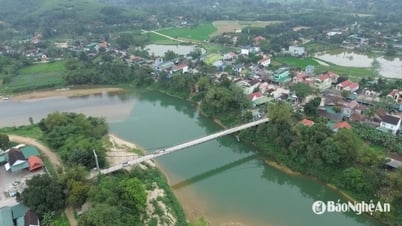



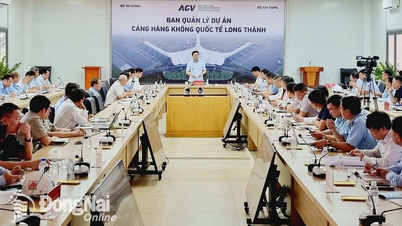






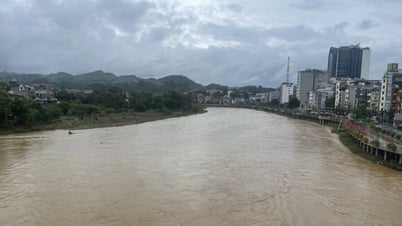
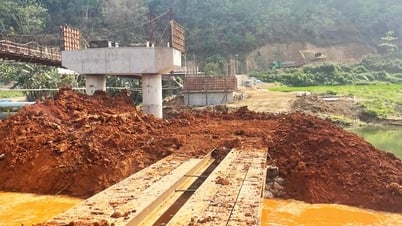


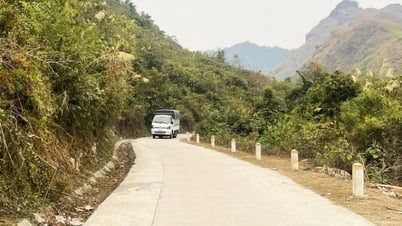
































































Comment (0)